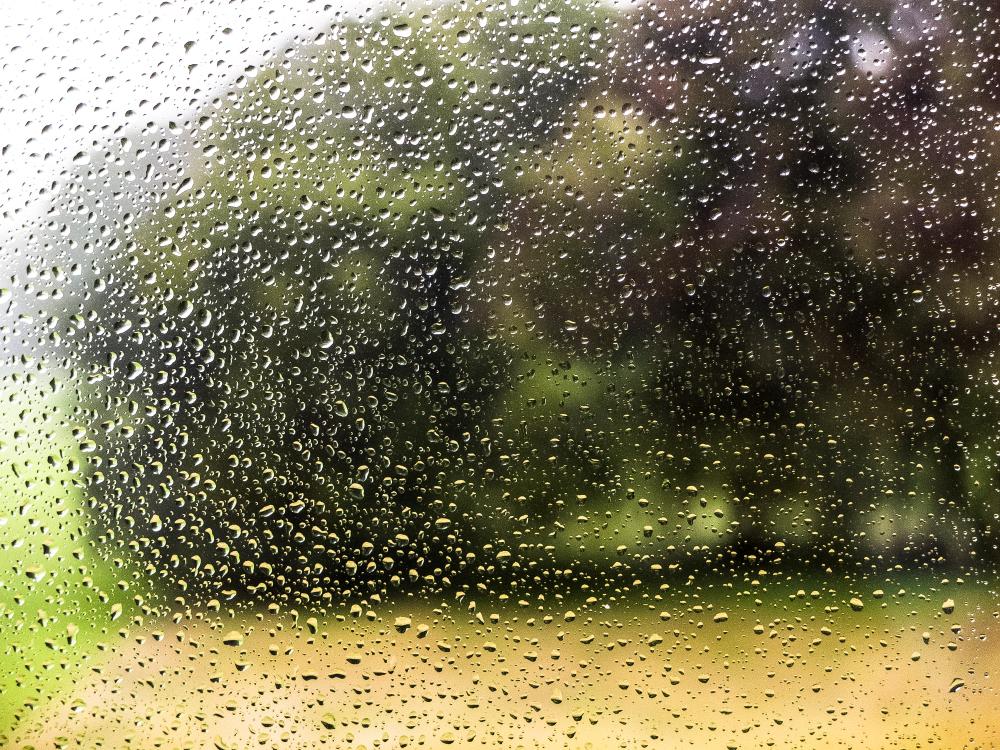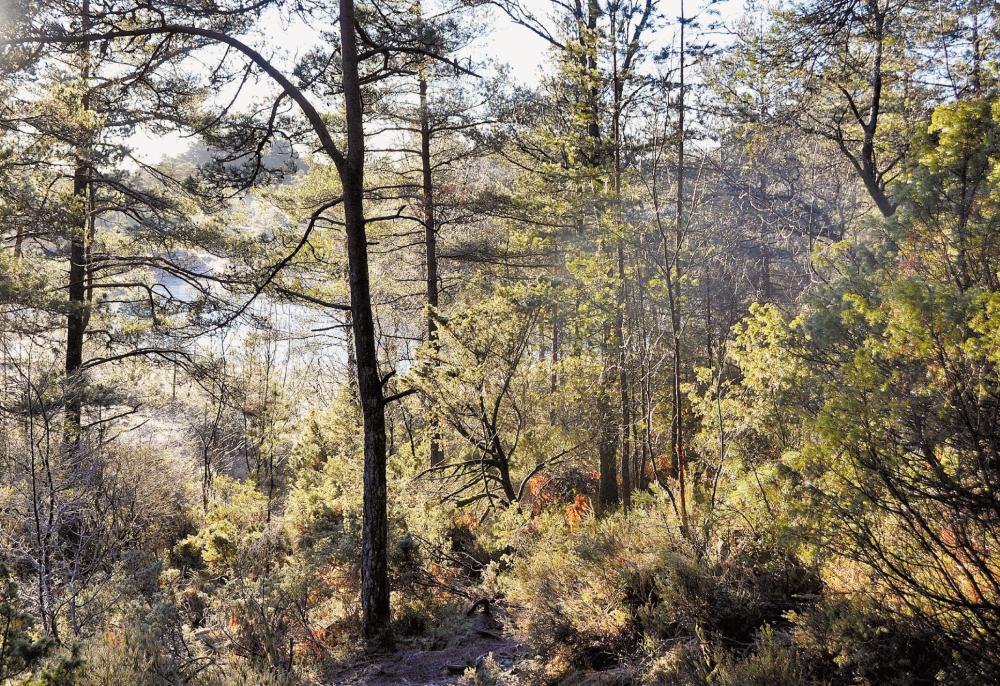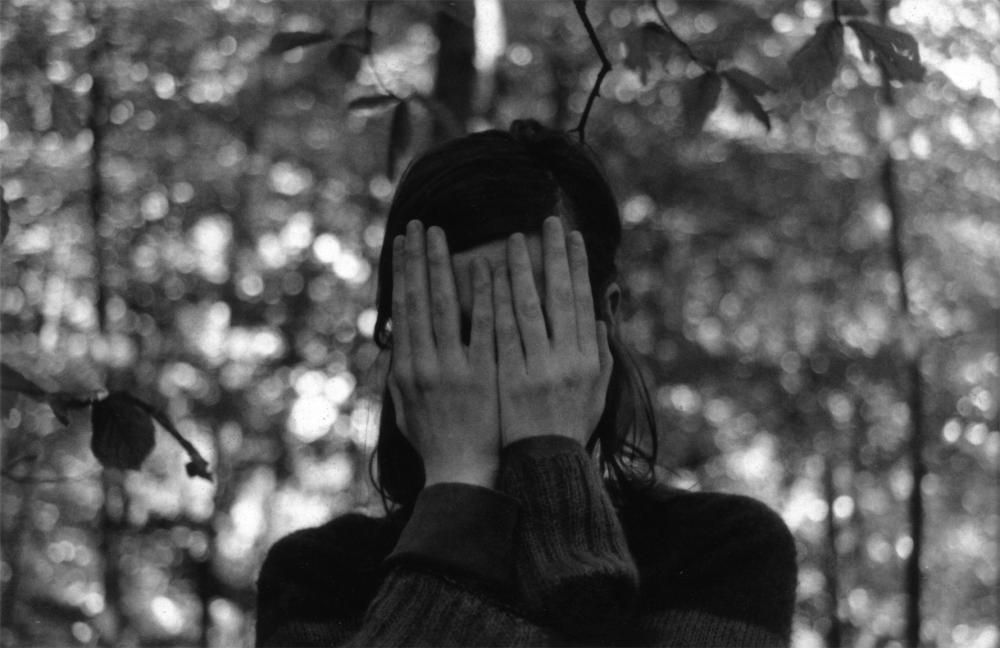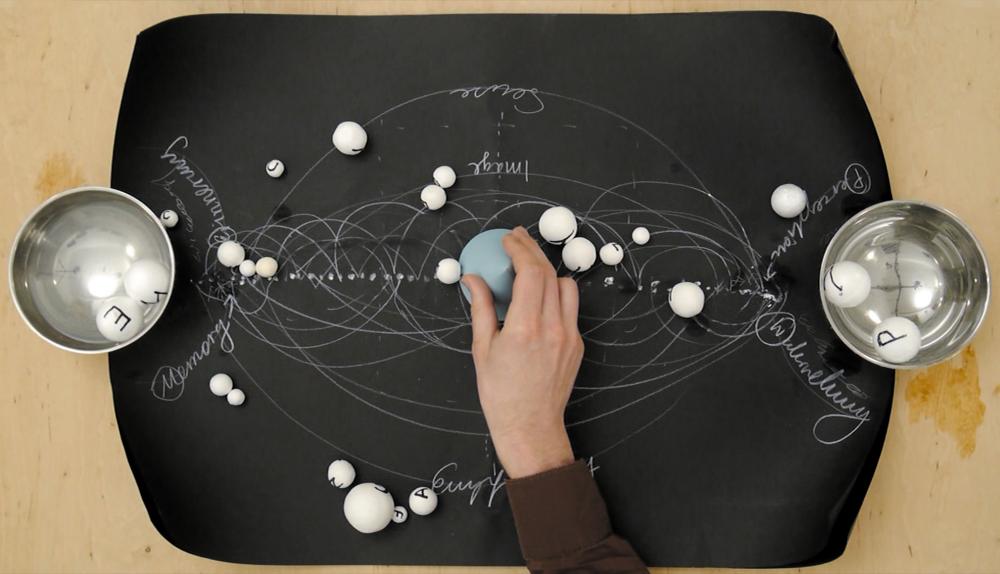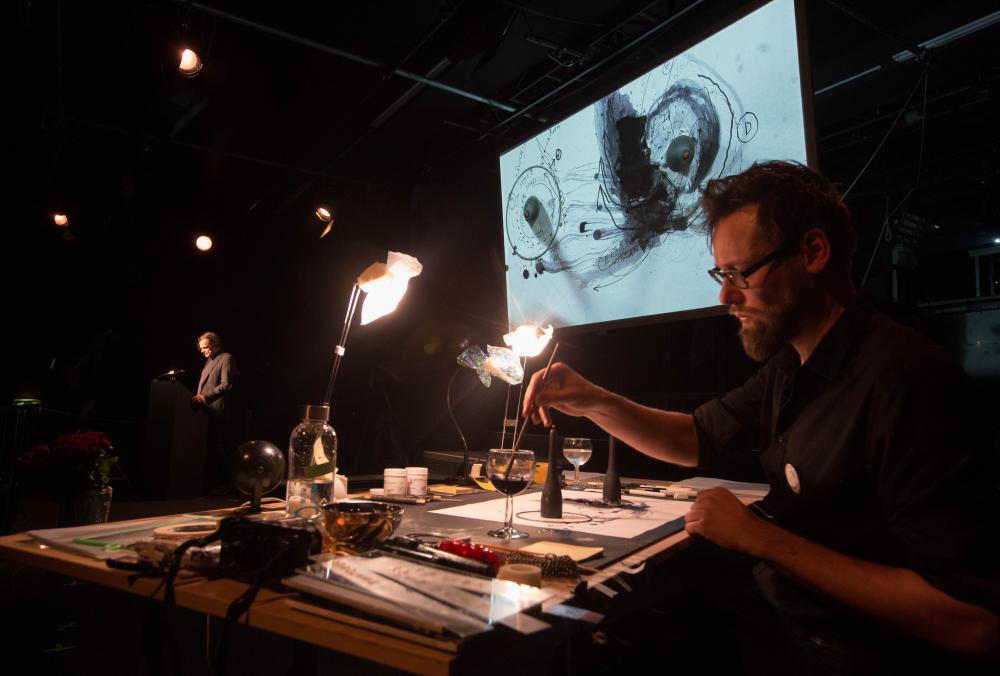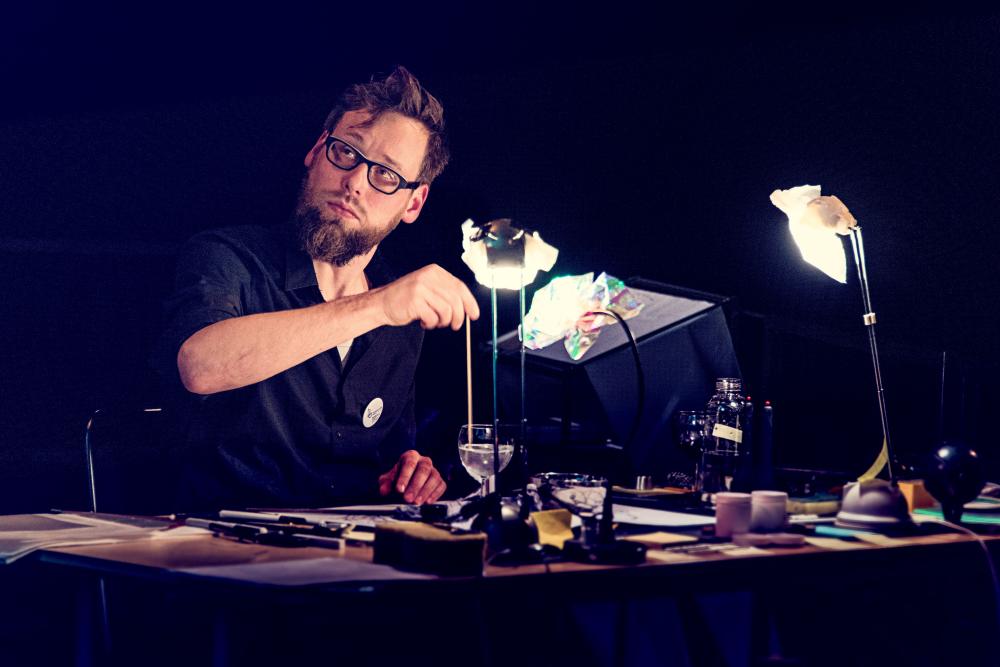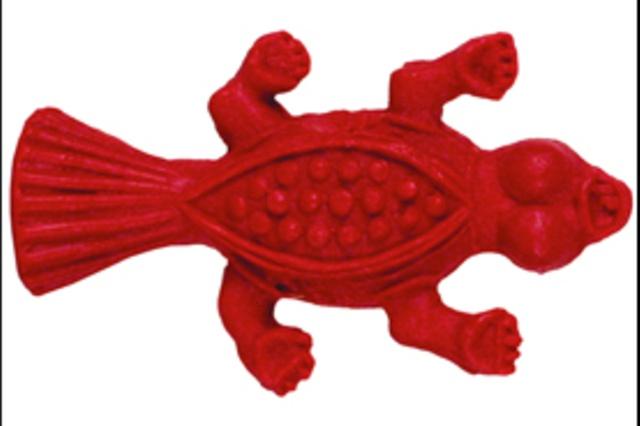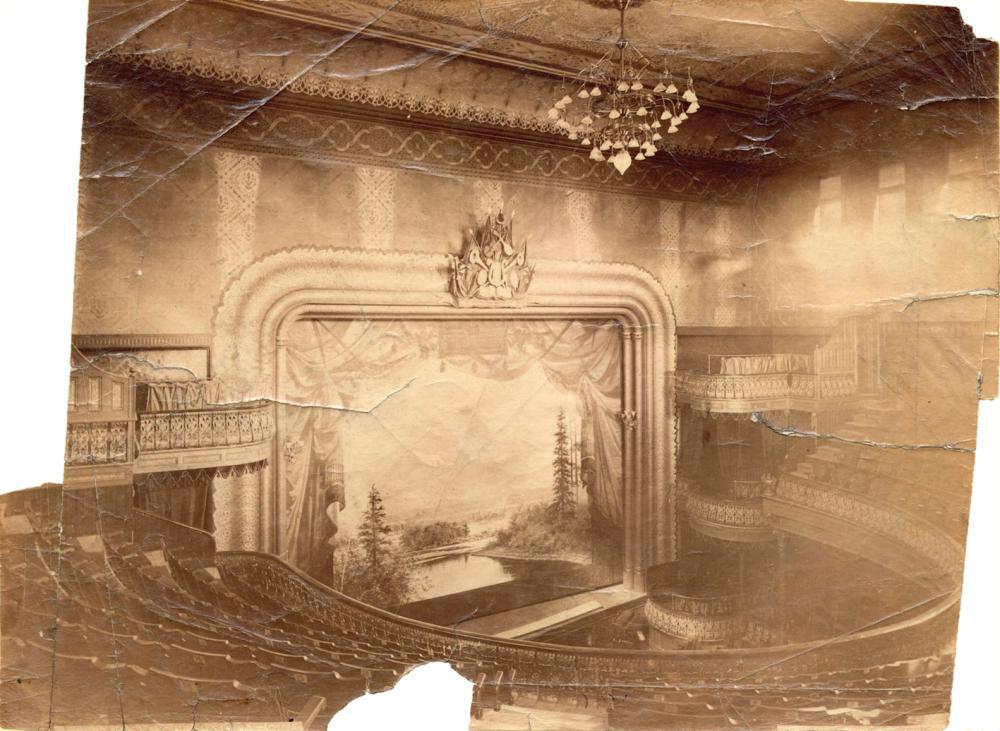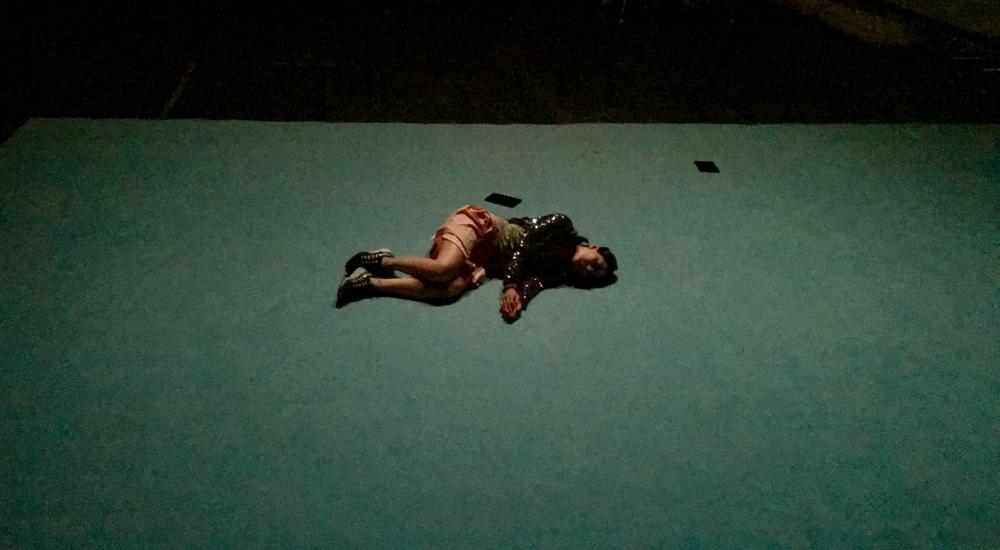On Enclosed Spaces and the Great Outdoors
À propos de transformations invisibles dans l’anthropocène
Nous vivons une époque dans laquelle l’activité humaine a un impact énorme sur notre environnement physique et écologique. Néanmoins, ces transformations se soustraient souvent à nos regards – elles sont littéralement trop grandes ou trop petites pour nos sens et notre imagination, même avec les instruments de mesure appropriés. Comment pouvons-nous créer aujourd’hui des récits, des esthétiques et des espaces d’expérimentation pour aborder cette situation de façon réflexive et critique ? Comment le théâtre peut-il attirer l’attention sur ces nombreux acteurs non humains qui y jouent un rôle ? À la recherche de réponses, David Weber-Krebs et Jeroen Peeters font entrer en résonance différentes interventions artistiques et théoriques dans un contexte performatif. Avec René ten Bos, Augusto Corrieri, Axel Dörner, Mette Edvardsen, Bryana Fritz, Nikolaus Gansterer, Anne Juren, Michael Marder et Stefanie Wenner.
IN ORDER OF APPEARANCE:
Mette Edvardsen – No Title
The performance No Title is about how reality exists in language and how this extends into real space. It is about how memory and imagination blur. It is about things and how things can be there and gone at the same time, and that what defines this is various. It is about things that are gone and about things that remain. No Title is about the awareness that all things are impermanent and that nothing lasts forever. It is about things that have gone before their time and things that never quite disappear. It is about what the piece and its making is, what a piece can do, what it is for, what its power and limit could be. It is about the gap between a world and our ideas of it, the invincible gap between thought and experience, between here and there. No Title is a writing in space, a writing that is both additive and subtractive. It is a writing that traces and erases, that moves and halts, that looks at things that are not there and recovers that which is instead. > www.metteedvardsen.be
Augusto Corrieri – Reasons for knocking at an empty house
Empty and abandoned theatres. Empty, because no ‘show’ is taking place, yet much is happening: weather, plant life, bacterial performances, seismic-gravitational adjustments. A whole background dramaturgy is at work here. Photographers and writers come along to document how nature has reclaimed these abandoned spaces, to describe how the outside has crept or burst inside. What do they find? They find that the outside has always been inside. They find that these theatres are not abandoned at all. They find that with the advent of the Anthropocene comes a certain conceptual impasse: an undoing of our ability to figure space, time and agency according to available concepts. The black box, the opera house, and the rehearsal studio are now laboratories for staying with a certain impasse: ‘At the heart of the human is nothing human’ (David Lapoujade). > www.augustocorrieri.com
Nikolaus Gansterer – Translectures
During On Enclosed Spaces and the Great Outdoors, Nikolaus Gansterer accompanies all the lectures in real time by translectures. Departing from research on drawing as a tool of communication and a score for instruction, Gansterer developed his Translectures. Translectures are translations. They transform one thought into another. They are also invitations to understand and interpret one reality through another. Signs, gestures and things all become equal players in a rapid table choreography that successively extends into an auto-poetic space-body diagram and interferes with its ad hoc notation. Gansterer performs his time-based fragile drawings and models as a rigorous development of a diagrammatic language for the materialisation of thought processes and a playful way of dealing with the complex levels of speculative knowledge. > www.gansterer.org
Stefanie Wenner – Grains of truth: What the toad told
Mother Hulda in Grimm’s Fairy Tales is the cleansed version of Hulda the goddess, the mistress of the right moment, living in the otherworld under the earth and at the same time on the milky way. You could find entrances to her world under elder trees, in fountains and in lakes. Toads would watch the entrances. In the middle of her garden there are speaking bread in an oven, speaking animals, and of course Hulda herself as the maker of snow and weather. The grotesque of her narrative was taken away in the Enlightenment, the alienation of the human body and other bodies in the world was substantiated through cutting storylines short.
Toads are part of the abjected grotesque popular culture that Wenner will consult in her lecture performance via folklore and fakelore. She will consider the human love affair with cereals, the spinning and weaving around wheat, and laughing culture as popular culture. We will need time to let the mushroom culture invade the dough, let it grow in the space of the theatre to then form, bake and eventually eat the toad-shaped pastries together. > www.apparatus-berlin.de
René ten Bos – Aesthetics in the anthropozone
Ten Bos claims that the new ecological realities we all know as the Anthropocene compel us to embrace new geophilosophical insights, something which he wants to capture with the notion of the Zone. This concept, derived from Andrei Tarkovsky’s famous film Stalker (1979), refers to an area in which everything changes as soon as a human being enters it. This is a key for understanding ecology in the epoch of the Anthropocene. The philosophical point Ten Bos wishes to make is that the notion of a Zone renders the age-old idea of the res extensa, the extended thing, superfluous. He will back up his argument with brief discussions of various artists (ranging from Francisco Goya to Wonbin Yang). > www.renetenbos.nl
Bryana Fritz – (a submission)
Written and performed by Bryana Fritz, (a submission) is both a poetry reading and a computer choreography.
Intro transcribed for a human reader:
soaking within the enclosure,
body in parenthesis beaching wet in the wares; hard and soft
leaving the landscape in beside,
oblique the terms and conditions as the participating text in fractures
rimming and limning those encrypted, unfolding interiors
scamming the outside as the forms at hand do splatter, on the screen, in the hands.
Axel Dörner – Composition for trumpet and electronics
As a composer and improvising musician, Axel Dörner has been developing a unique language for the trumpet since the late 1990s, for which he makes use of extended techniques, as well as electronic extensions. Each piece of music he plays is indeed a com-position in real time, that is a placing together of heterogeneous elements. These include equipment, body, air and the space, but also involve our place as human beings, the politics of our present time and the thoughts all of this triggers. And there is the place of the listeners, who co-create the work through their experience and imagination by putting it in relation to everything they know. Fundamentally, the musical notes are clear, but com-position is an invitation for experimentation that opens up a vast field. > www.axeldoerner.org
Michael Marder – All the world’s a dump
“All the world’s a stage,” announces Jacques in Shakespeare’s As You Like It. As a stage, the world is a place for the appearing of what appears, for the phenomenality of phenomena as such. If all the world is a stage, then it is the space or the place for the appearing of everything that appears. To ask what a stage is would be to ask about the very meaning of the world.
Replacing the stage with a dump in the famous line from Shakespeare’s play, we will accompany in thought the actual vanishing of the firm support the stage used to provide. Unfathomable depth is essential to the dump – a shorthand for contemporary ontology, embracing the undifferentiated and massive mix of sensations, part-objects, bits of information, spent packaging, obsolescent artefacts, bodies living and dead, toxins, raw sewage, ideas… – just as an underlying surface belongs to the stage. A dump is that into which beings fall, the dynamic movement of falling and the state of having fallen. It is a non-place for the disappearance of the dumped entities. And if all the world is a dump, then it is that wherein everything disappears, even and especially in the instant of coming into the world. Because what evanesces with dumped beings is the world-stage itself, which is never empty. The dump is the unworlding (and the unstaging) of the world. > www.michaelmarder.org
Anne Juren – Fantasmical anatomies: an auscultation
In her Studies on fantasmical anatomies Anne Juren attempts to expand the imagination of the body and its boundaries by proposing a textual landscape in which the choreography is placed inside the body of the spectator.
A voice invites the spectators to travel the inner and unknown parts of their bodies. It imposes an unreading of what a body is and where its borders are and disrupts the logic of anatomy by creating unexpected relations. During this trip inside their own bodies, the spectators are engaged in different states of kinaesthetic, sensorial, mental and cosmic cannibalistic experiences. A landscape of phantasmagoric and delirious spaces opens up, where dysfunctional relations and improbable actions can take place, troubling the relations between inner and outer sensations. > www.wtkb.org
curators David Weber-Krebs, Jeroen Peeters | guests to be confirmed | production Kaaitheater, Infinite Endings | co-production Kunstencentrum BUDA, Damaged Goods
Your ticket includes lunch and dinner.
Please book early so we can ensure there's enough food for everyone!
11.00-13.00
Introduction by Jeroen Peeters and David Weber-Krebs
Mette Edvardsen – No title
Augusto Corrieri – Reasons for knocking at an empty house
Stefanie Wenner – Grains of truth: What the toad told (part 1)
In parallel: Nikolaus Gansterer – Translectures
13.00-14.00 Lunch
14.00-15.45
René ten Bos – Aesthetics in the anthropozone
Stefanie Wenner – Grains of truth: What the toad told (part 2)
In parallel: Nikolaus Gansterer – Translectures
Bryana Fritz, (a submission)
16.00-18.00
Axel Dörner – Composition for trumpet and electronics
Michael Marder – All the world’s a dump
In parallel: Nikolaus Gansterer – Translectures
Anne Juren – Fantasmical anatomies: an auscultation
Stefanie Wenner – Grains of truth: What the toad told (part 3)
18.00 Dinner
